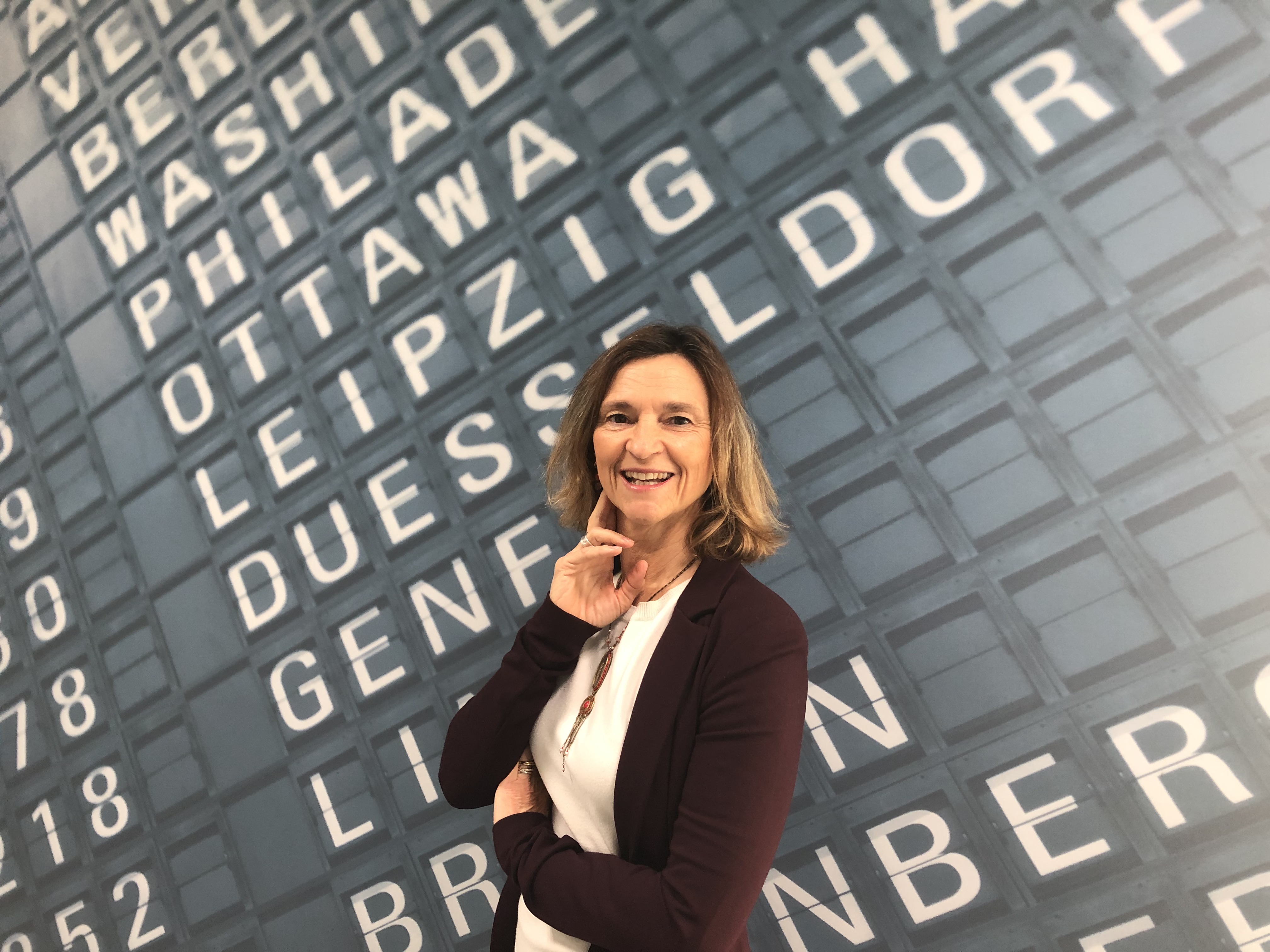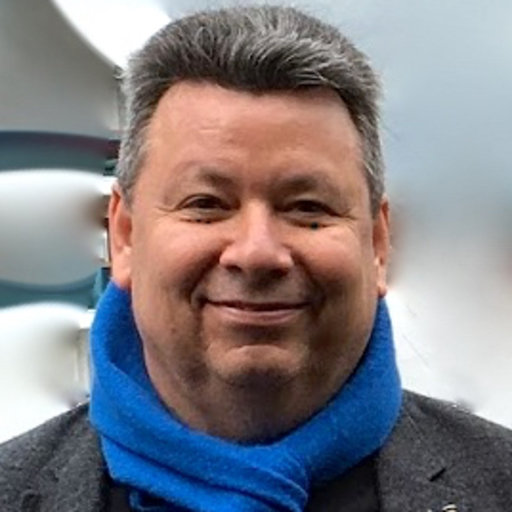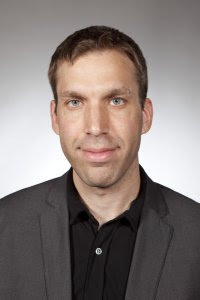Wed 20 SepDisplayed time zone: Athens change
08:00 - 09:00 | |||
09:00 - 09:30 | |||
09:00 30mMeeting | Opening Social Bedir Tekinerdogan Wageningen University, The Netherlands | ||
09:30 - 10:30 | |||
09:30 60mKeynote | The trek towards sustainability - truth, tale, or transition? Keynotes Birgit Penzenstadler Chalmers | ||
10:30 - 11:00 | |||
Thu 21 SepDisplayed time zone: Athens change
08:00 - 09:30 | |||
09:30 - 10:30 | |||
09:30 60mKeynote | Green IT: How you can take action now Keynotes | ||
10:30 - 11:00 | |||
Fri 22 SepDisplayed time zone: Athens change
08:00 - 09:30 | |||
09:30 - 10:30 | KeynoteKeynotes at Mavi Salon Chair(s): Chouki Tibermacine LIRMM, CNRS and University of Montpellier | ||
09:30 60mKeynote | Software Architecture in the Era of Collective Intelligence: The Rise of Systems-of-Systems Keynotes Flavio Oquendo IRISA (UMR CNRS) - Univ. Bretagne-Sud (UBS) | ||
10:30 - 11:00 | |||
Not scheduled yet
| Not scheduled yet Talk | Opening Keynotes | ||
| Not scheduled yet Keynote | The PhD journey Keynotes Matthias Galster University of Canterbury |
Accepted Papers
About
Virginie Corraze
Affiliation: Amadeus IT Group, S.A.

When: TBA
Where: İnan Kıraç Konferans Salonu
Abstract: "Green IT: How you can take action now"
The younger generations seek a sense of purpose in their work, while the pace of climate change is
increasing, with IT industry playing a significant role in this acceleration through its carbon footprint.
Now is the time to take accountability and prioritize sustainability in all engineering activities, to
generate a positive influence and reduce the environmental impact of IT and in particular as a software
architect.
Join the session to gain knowledge on the fundamentals of green IT, learn Amadeus' feedback practices on
deploying green practices in an IT organization, and ways to integrate sustainable development in your daily
work.
Bio: Virginie Corraze is Associate Director at Amadeus, in charge of Engineering Quality & Sustainability. She has 25+ years of experience in IT travel, in both commercial and R&D organization. Virginie and her team interact with the Amadeus engineering community (8,000 members), to ensure sustainability and quality are part of all engineering practices. This includes driving the strategy, listening to users and building the relevant methodology and tooling. Previously, Virginie has held various positions in commercial and R&D organizations. On the personal side, Virginie is a passionate teacher of dynamic yoga, which is a great source of life balance.
Flavio Oquendo
Affiliation: (IRISA – UMR CNRS / Univ. Bretagne Sud, France)

When: TBA
Where: İnan Kıraç Konferans Salonu
Abstract: "Software Architecture in the Era of Collective Intelligence: The Rise of
Systems-of-Systems"
This keynote addresses why and how software architecture plays a central
role in building collective intelligence in a rising class of complex systems, enabled by
pervasive connectivity. De facto, different enabling technologies have progressively
made possible to interconnect software-intensive systems that were independently developed, operated,
managed, and evolved, yielding a new kind of complex system, i.e., a system that is itself composed of systems,
the so-called “system-of-systems”. By its very nature, a software-intensive system-of-systems is architected to
exhibit “collective intelligence”, very often opportunistically while operating in open environments. This is
the
case of systems-of-systems found in different areas as diverse as automotive, aeronautics, energy, healthcare,
manufacturing, and transportation. In this context, safety is of paramount necessity since various aspects of
our lives and livelihoods are becoming progressively dependent on those systems-of-systems.
In this keynote, I will present the challenges facing research on software architecture to address the building
of
artificial collective intelligence in systems-of-systems, while enforcing safety. I will discuss the
discriminating
characteristics of systems-of-systems when compared with single (even very large) systems from the software
architecture perspective. Especially, I will analyze why novel architectural approaches are needed to handle the
complexity of software-intensive systems-of-systems in particular regarding the architectural challenges
implied by self-organization and emergent behavior, the two key features for supporting collective intelligence.
I will survey novel solutions for architecting systems-of-systems based on supervenience for achieving
intelligent collective behavior and illustrate their applications in the field of driving automation for
connected
and automated vehicles. I will conclude by identifying the guarantees of correctness of the proposed
approaches for architecting safe systems-of-systems, based on formal description and verification techniques
dealing with dynamicity and uncertainty.
Bio: Flavio Oquendo is a Full Professor of Computing and a research director on Formal Approaches to Software Architecture at the IRISA Research Institute (UMR CNRS 6074), France. He received the B.Sc. Eng. degree from ITA, and the M.Sc., Ph.D., and H.D.R. (Research Direction Habilitation) degrees in Computing from the University of Grenoble, France. He has been a recipient of the Research Excellence Award from the Ministry of Research and Higher Education (France) , having been promoted to the rank of Distinguished Full Professor, named by the Section of Computing of the National Council of Universities. Prof. Oquendo has over 35 years of experience in R&D on Software Engineering, and in particular on Software Architecture. He published over 250 peer-reviewed research papers in international journals and conference proceedings in leading international venues and has been editor of over 25 special journal issues and research books. He has served on program committees of over 200 international conferences, including the key ones in his field of research, e.g., ACM/IEEE ICSE, ACM ESEC/FSE, IFIP/IEEE WICSA/ICSA, IEEE SoSE, and ECSA, having chaired 30 of them, in particular the French, European, and international conferences on Software Architecture, i.e., CAL, ECSA, and WICSA/ICSA. He served as ECSA Steering Committee Chair and has been a member of the CAL, ECSA, and WICSA/ICSA Steering Committees. Prof. Oquendo has been Principal Investigator in numerous European R&D Projects, since the first European Union's Framework Program for Research and Innovation, in different topics of Software-intensive Systems and Systems-of-Systems Architecture and Engineering, as well as has acted as expert for the European Commission for more than 20 years. He has, in particular, acted as evaluator and reviewer many times, including for NoE, FET, STREP, IP, and currently for IA and RIA projects in Horizon Europe. Throughout the years, he has collaborated in joint R&D projects with many universities and more than 30 engineering companies in a dozen countries. Recently, he has coordinated the French R&D Network on Systems-of-Systems from the GDR GPL (CNRS). His research interests are centered on formal languages, processes, and tools to support correctness-by-design of efficient software architectures of software-intensive systems and systems-of-systems and their applications in industrial settings. His web page is http://people.irisa.fr/Flavio.Oquendo
Birgit Penzenstadler

When: TBA
Where: İnan Kıraç Konferans Salonu
Abstract: "The trek towards sustainability - truth, tale, or transition? "
You may have heard about sustainability and the Sustainable Development Goals and the Global Reporting
Initiative that now requires bigger companies to adjust their reporting in order to increase transparency. At
the same time, you may have a funky feeling that there’s quite a bit of hot air and greenwashing going on around
there. So how do we truly transition towards more sustainability? Why may we also want to think about more
resilience? And what inner transition is required to make this big outer shift? In this talk, I give a brief
(necessarily incomplete) overview of the last decade of sustainability research in and outside of software
engineering and sketch a vision of what’s to come if we truly embrace a transition, and what may happen if we
don’t.
Bio: Birgit Penzenstadler is an Associate Professor at the joint Department of Computer Science and Engineering at Chalmers University of Technology and Gothenburg University, Sweden, as well as an Adjunct Professor at the Lappeenranta University of Technology, Finland. She holds a PhD in Software Engineering from the Technical University of Munich, Germany, and is an Embodied Mindfulness Coach and a 500-RYT yoga teacher with special certification in breathwork. She has been investigating well-being www.twinkleflip.com, resilience, and sustainability from a point of view of software engineering during the past ten years, working on a body of knowledge and concepts of how to support sustainability from within RE. Part of these efforts are documented with the Karlskrona Alliance that published a body of work including the Karlskrona Manifesto (see also http://www.sustainabilitydesign.org). She included the topic into the curriculum of her departments at various universities along the way (Technical University of Munich, University of California, Irvine, California State University Long Beach, Chalmers Technical University) and established industrial collaborations for case studies. She gave a TEDx talk in 2022 in Goeteborg about how wellbeing, resilience and sustainability are connected and how to consider them when designing technology. https://www.youtube.com/watch?v=04JkvbF4I9A Connect with her on LinkedIn https://www.linkedin.com/in/birgit-penzenstadler/ or find her on Twitter as @twinkleflip
Matthias Galster

When: TBA
Where: İnan Kıraç Konferans Salonu
Abstract: "The PhD journey"
In this talk we will walk through some of the stages of the PhD journey. We will cover various best practices and lessons learned and how to organize the PhD journey, discuss what makes a good research topic (and good research), and explore what can go wrong along the way.
Bio: Matthias Galster is a Professor in the Department of Computer Science and Software Engineering at the University of Canterbury in Christchurch, New Zealand. His current work aims at improving the way we develop high quality software, with a focus on software architecture, development processes and practices and empirical software engineering.